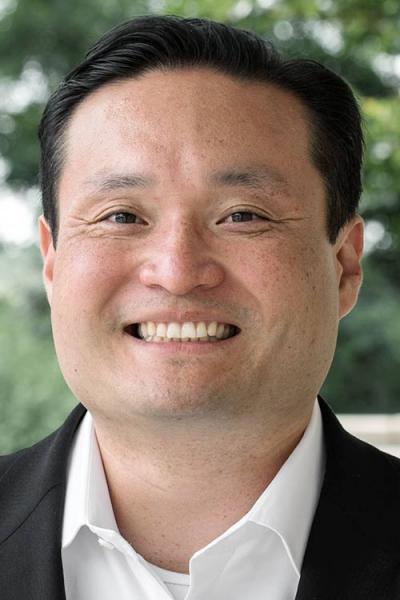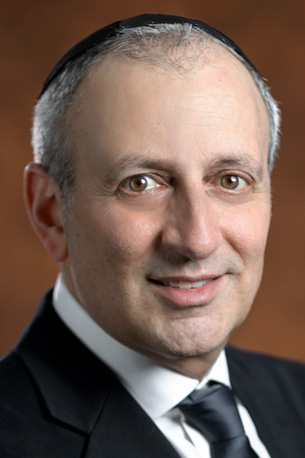/ Featured Blogs
Protecting an Enterprise from Cyber Catastrophe
 We are suffering an epidemic of cyberattacks while in a viral pandemic. This post is for those who have responsibility for assuring that the IT-based services offered by their enterprise can quickly recover in the case of successful cyber-attack or other disaster. University of Vermont Medical Center (UVMMC) is an excellent hospital. I owe my life to treatment there and am grateful for both the skill and the kindness of UVMMC staff. They have been devastated by a cyber-attack.
We are suffering an epidemic of cyberattacks while in a viral pandemic. This post is for those who have responsibility for assuring that the IT-based services offered by their enterprise can quickly recover in the case of successful cyber-attack or other disaster. University of Vermont Medical Center (UVMMC) is an excellent hospital. I owe my life to treatment there and am grateful for both the skill and the kindness of UVMMC staff. They have been devastated by a cyber-attack.
- By Tom Evslin
- Comments: 0
- Views: 10,463
An Innovative Framework That Will Help the IoT Industry Scale Into the Billions
 The Internet of Things (IoT) is on an explosive growth trajectory. According to Transforma Insights, the number of IoT-connected devices is projected to increase to 24.1 billion worldwide by 2030. That's almost a three-fold increase from 2019. Much of this growth will be fueled by the coming 5G revolution, which will enable businesses and consumers to take advantage of a wide range of increasingly sophisticated connected devices.
The Internet of Things (IoT) is on an explosive growth trajectory. According to Transforma Insights, the number of IoT-connected devices is projected to increase to 24.1 billion worldwide by 2030. That's almost a three-fold increase from 2019. Much of this growth will be fueled by the coming 5G revolution, which will enable businesses and consumers to take advantage of a wide range of increasingly sophisticated connected devices.
- By Natasha D’Souza
- Comments: 2
- Views: 15,080
Cybersecurity Considerations in the Work-From-Home Era
 Verisign is deeply committed to protecting our critical internet infrastructure from potential cybersecurity threats, and to keeping up to date on the changing cyber landscape. Over the years, cybercriminals have grown more sophisticated, adapting to changing business practices and diversifying their approaches in non-traditional ways. We have seen security threats continue to evolve in 2020, as many businesses have shifted to a work from home posture due to the COVID-19 pandemic.
Verisign is deeply committed to protecting our critical internet infrastructure from potential cybersecurity threats, and to keeping up to date on the changing cyber landscape. Over the years, cybercriminals have grown more sophisticated, adapting to changing business practices and diversifying their approaches in non-traditional ways. We have seen security threats continue to evolve in 2020, as many businesses have shifted to a work from home posture due to the COVID-19 pandemic.
- By Yong Kim
- Comments: 0
- Views: 10,773
Internet Governance and the Universal Declaration of Human Rights, Part 6: Articles 18-19
 Internet Governance, like all governance, needs guiding principles from which policy making, and acceptable behavior, are derived. Identifying the fundamental principles to guide Internet ecosystem policy making around digital citizenship, and around the integrity of digital practices and behavior, can and should start with the Universal Declaration of Human Rights, (UDHR).
Internet Governance, like all governance, needs guiding principles from which policy making, and acceptable behavior, are derived. Identifying the fundamental principles to guide Internet ecosystem policy making around digital citizenship, and around the integrity of digital practices and behavior, can and should start with the Universal Declaration of Human Rights, (UDHR).
- By Klaus Stoll
- Comments: 3
- Views: 16,022
A Look at the Big Guys - Putting the Telecom Sector Into Perspective
 You can't put the telecom sector into perspective without looking at the performance of the biggest players in the industry. The pandemic has been an interesting year for both big ISPs and telecom vendors. Smaller ISPs should care about big ISP performance for many reasons. For many smaller companies, the big companies are the competition, and the big providers' strength or weakness can foretell stiffened competition or increased opportunity.
You can't put the telecom sector into perspective without looking at the performance of the biggest players in the industry. The pandemic has been an interesting year for both big ISPs and telecom vendors. Smaller ISPs should care about big ISP performance for many reasons. For many smaller companies, the big companies are the competition, and the big providers' strength or weakness can foretell stiffened competition or increased opportunity.
- By Doug Dawson
- Comments: 0
- Views: 7,527
What Will 6G Look Like in a Geopolitical Divided World
 A recent session of the Australian Computer Society (ACS) and the Australian Smart Communities Association (ASCA) masterclass on 5G, featured Dr. Ian Oppenheimer, the NSW Government's Chief Data Scientist and one of the country's most respected experts in radio technology. Ian is also the Chair of the scientific advisory board of the 6G Flagship organization, a global research organization based in Finland. This organization has just published a range of fascinating research papers on 6G.
A recent session of the Australian Computer Society (ACS) and the Australian Smart Communities Association (ASCA) masterclass on 5G, featured Dr. Ian Oppenheimer, the NSW Government's Chief Data Scientist and one of the country's most respected experts in radio technology. Ian is also the Chair of the scientific advisory board of the 6G Flagship organization, a global research organization based in Finland. This organization has just published a range of fascinating research papers on 6G.
- By Paul Budde
- Comments: 0
- Views: 10,563
First RIPE NCC “Seizure of IPv4 Addresses” – Is This the Beginning of IPv4 as Collateral?
 In a publication released on October 2, 2020, RIPE NCC reported its first seizure of IPv4 registration rights pursuant to a Dutch court order. Pursuant to the order, RIPE NCC effectuated a transfer of the IP Addresses from the liquidating debtor to its creditor. Although these IP Addresses could not be owned, they were apparently not legacy. Thus, they conferred no "property rights" - the registration rights were deemed an enforceable right that has value and were to be utilized towards satisfaction of a judgment.
In a publication released on October 2, 2020, RIPE NCC reported its first seizure of IPv4 registration rights pursuant to a Dutch court order. Pursuant to the order, RIPE NCC effectuated a transfer of the IP Addresses from the liquidating debtor to its creditor. Although these IP Addresses could not be owned, they were apparently not legacy. Thus, they conferred no "property rights" - the registration rights were deemed an enforceable right that has value and were to be utilized towards satisfaction of a judgment.
- By Jack Hazan
- Comments: 0
- Views: 11,323
OneWeb Is Out of Bankruptcy, but Not Out of the Woods
 OneWeb, which declared bankruptcy in May, has reorganized and emerged from bankruptcy. Bharti Global, an Indian telecommunication conglomerate, and the British government each own 42.2% of the new company, and most of the rest is owned by previous investors SoftBank and Hughes Network Systems. Hughes will continue work on ground infrastructure and marketing and the original joint venture with Airbus, which designs and manufactures OneWeb satellites...
OneWeb, which declared bankruptcy in May, has reorganized and emerged from bankruptcy. Bharti Global, an Indian telecommunication conglomerate, and the British government each own 42.2% of the new company, and most of the rest is owned by previous investors SoftBank and Hughes Network Systems. Hughes will continue work on ground infrastructure and marketing and the original joint venture with Airbus, which designs and manufactures OneWeb satellites...
- By Larry Press
- Comments: 0
- Views: 10,022
IPv4 Market and IPv6 Deployment
 IPv4.Global's Lee Howard will be a panelist at the Internet Governance Forum's session, "IGF 2020 WS #327 Believe it or not, the Internet Protocol is on Sale!" Preparing for this session has provided an opportunity to research how the IPv4 address market has affected the deployment of IPv6. There are a few spikes where a large number of addresses was transferred in a single transaction, most recently from APIDT.org.
IPv4.Global's Lee Howard will be a panelist at the Internet Governance Forum's session, "IGF 2020 WS #327 Believe it or not, the Internet Protocol is on Sale!" Preparing for this session has provided an opportunity to research how the IPv4 address market has affected the deployment of IPv6. There are a few spikes where a large number of addresses was transferred in a single transaction, most recently from APIDT.org.
- By Lee Howard
- Comments: 0
- Views: 10,920
The End of Broadband Networks as We Know Them
 A group of major telecommunications companies -- Vodafone, BT, Telefonica and Deutsche Telekom -- recently announced something a bit unexpected. In the Open BNG Operator Position Paper, they call for a fundamental, industry-wide change to the way broadband networks are built. Specifically, they advocate for collaboration throughout the telco world, with a convergence around open broadband network gateways (BNGs).
A group of major telecommunications companies -- Vodafone, BT, Telefonica and Deutsche Telekom -- recently announced something a bit unexpected. In the Open BNG Operator Position Paper, they call for a fundamental, industry-wide change to the way broadband networks are built. Specifically, they advocate for collaboration throughout the telco world, with a convergence around open broadband network gateways (BNGs).
- By Hannes Gredler
- Comments: 0
- Views: 10,005